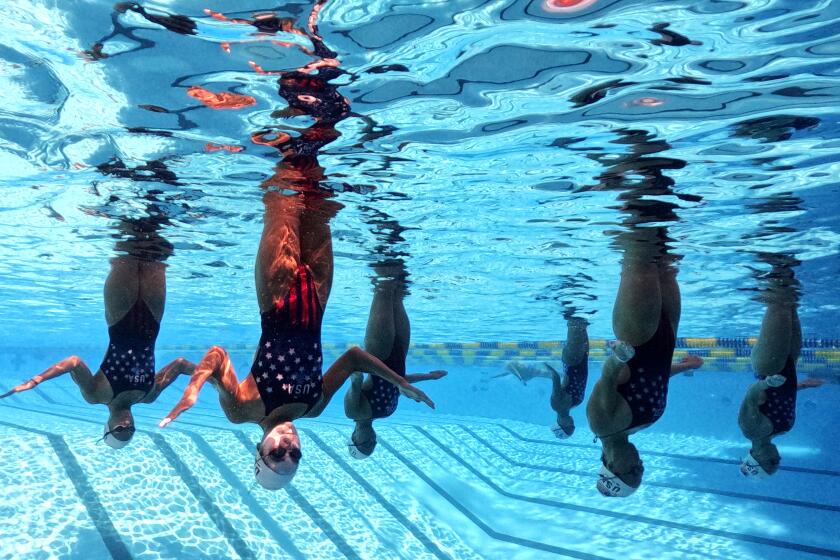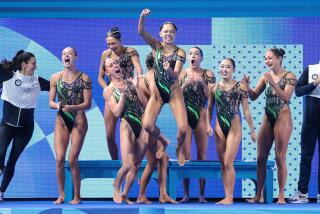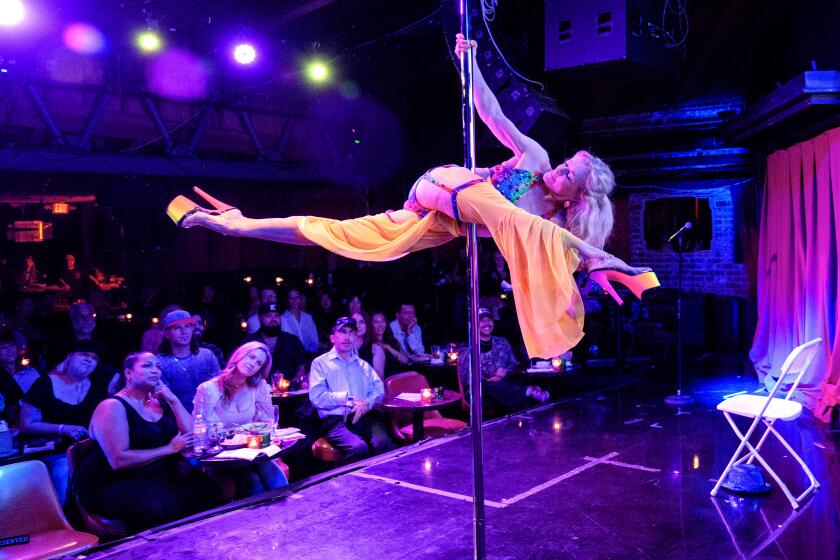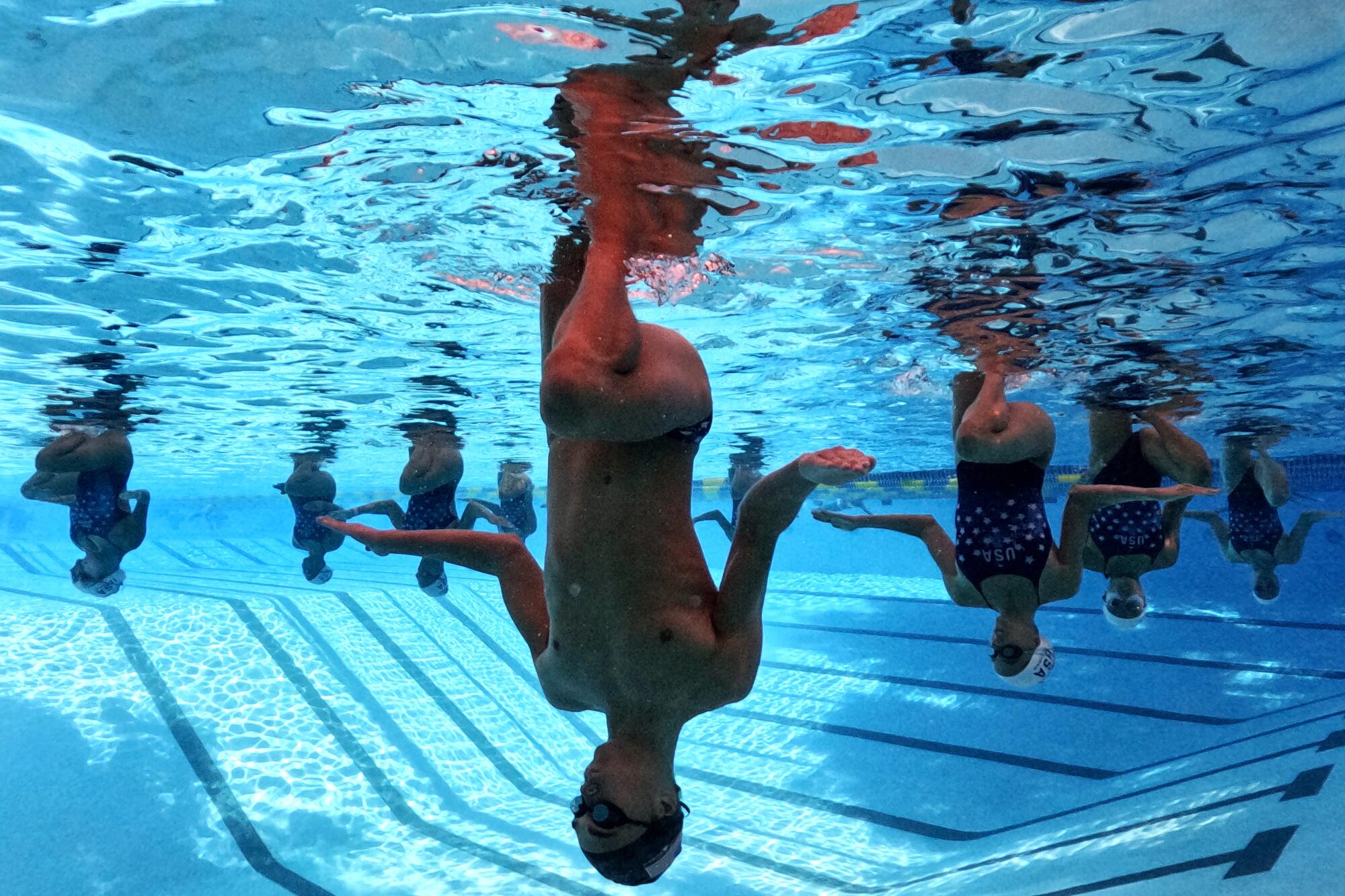
The girls seemed to like having Kenny Gaudet on their team but some of the parents, not so much. They went behind his back, quietly complaining to the coach.
Kenny should not be playing this sport, they said.
As the only schoolboy in his part of Florida who wanted to pursue artistic swimming — known as synchronized swimming back then — Gaudet had no choice but to join an all-girls club. It wasn’t until much later that his coach told him about the adults griping.
“I’m glad she kept it from me,” he says. “I was so young and, mentally, I wasn’t prepared for that stuff.”
A decade later, the 18-year-old remains an outlier as the only man on the U.S. national roster. The Olympics do not allow men in artistic swimming — at least not yet — but Gaudet can compete on the international circuit, where he and partner Claudia Coletti finished fifth in mixed duet at the 2022 world championships.
“Kenny is so powerful,” Coletti says. “I really like it because he can lift me up super high, so I have more things I can do in the air.”
On a summer day at the team’s UCLA-based training site, while the women rehearse their technical routine, Gaudet practices alone in a corner of the pool. An assistant coach watches, jumping from her seat to correct his shoulder rotation on a particular movement.
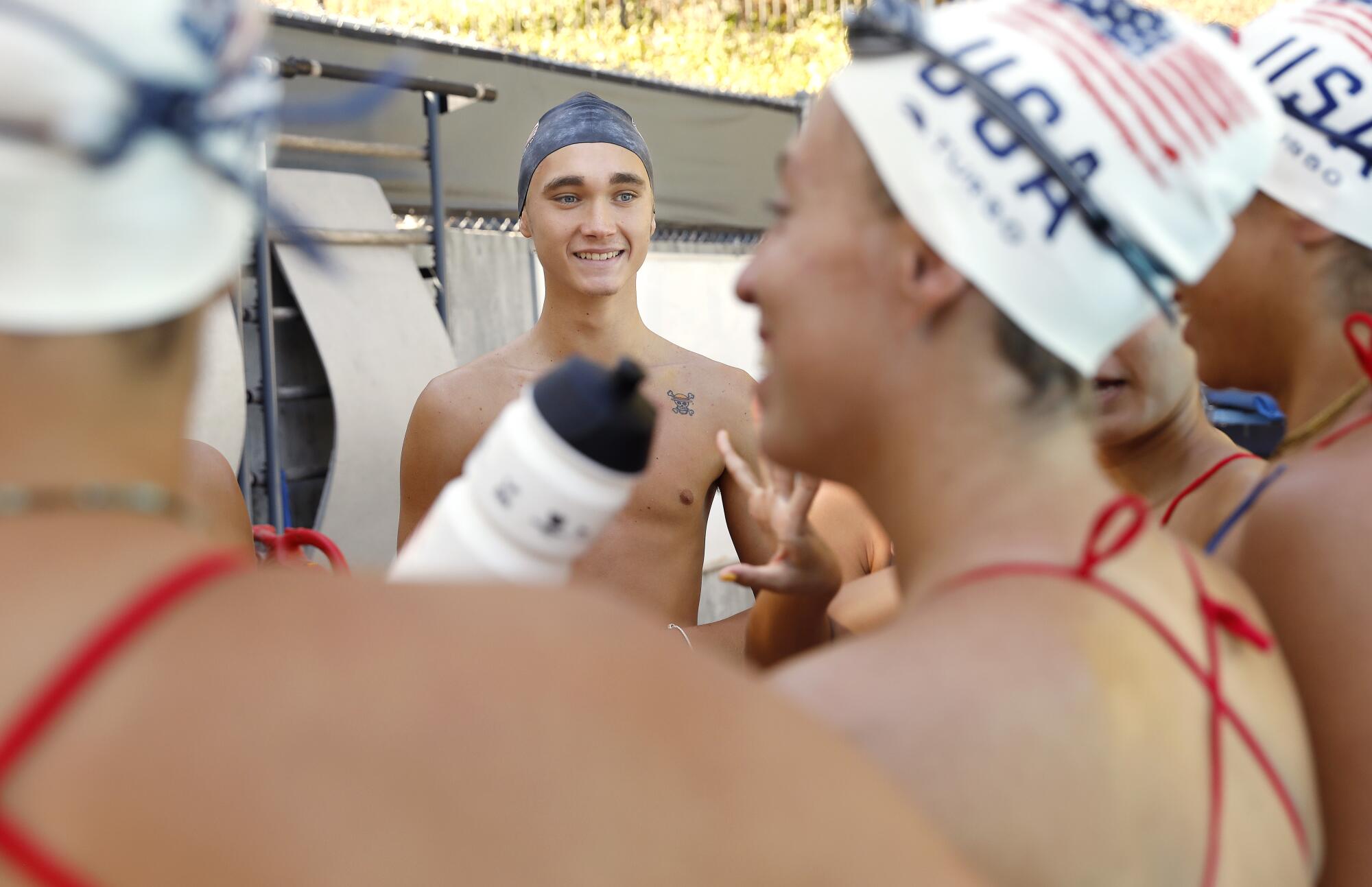
“There are so many complicated things we have to do,” Gaudet says. “We have to figure out ways to make our bodies move the way we want.”
Though artistic swimming is commonly associated with women, both sexes played a role in its origin, performing “water ballets” for audiences during the 1800s. As these demonstrations morphed into competition, men got left out.
“Kenny is so powerful. I really like it because he can lift me up super-high, so I have more things I can do in the air.”
— U.S. artistic swimmer Claudia Coletti
It wasn’t until the 1990s that an American named Bill May got them back in the game, learning the sport as a kid and moving to California to join a well-known club. He competed at domestic and select international events, retired for a decade to perform for Cirque du Soleil, then came back when the international swimming federation added mixed duet to the 2015 world championships.
“I really do think it’s a progression,” May said after winning gold with his female partner. “I think this sport is going to grow and allow more men.”
Last summer, a dozen mixed pairs competed at the world championships in Budapest, Hungary. Regular-season meets include men’s solo. “It’s the best community because there’s not that many of us,” Gaudet says. “We’re really competitive but we’re also, like, super supportive.”
Taking part in artistic swimming’s evolution was never his intention. He was simply following a sister who took up the sport in 2011.
Being the only boy on a local YMCA team did not feel so odd to someone who was also a cheerleader alongside girls at school. Though some kids teased and bullied him away from the pool, Gaudet had good reason to stick with it.
“In the water, I can move my body differently,” he says. “I like how I can express myself in the water rather than on land.”
Each year brought improvement and encouraging results in youth competitions. But the team practiced only a few times a week so, when the national squad invited Gaudet for a tryout, the learning curve was steep.
At the elite level, artistic swimmers tread water between drills, spending long periods of time without grabbing hold of the side. “Kenny was going to the wall, listening to us and then coming back,” U.S. coach Andrea Fuentes recalls. “We were like, wow, he needs a lot of practice.”
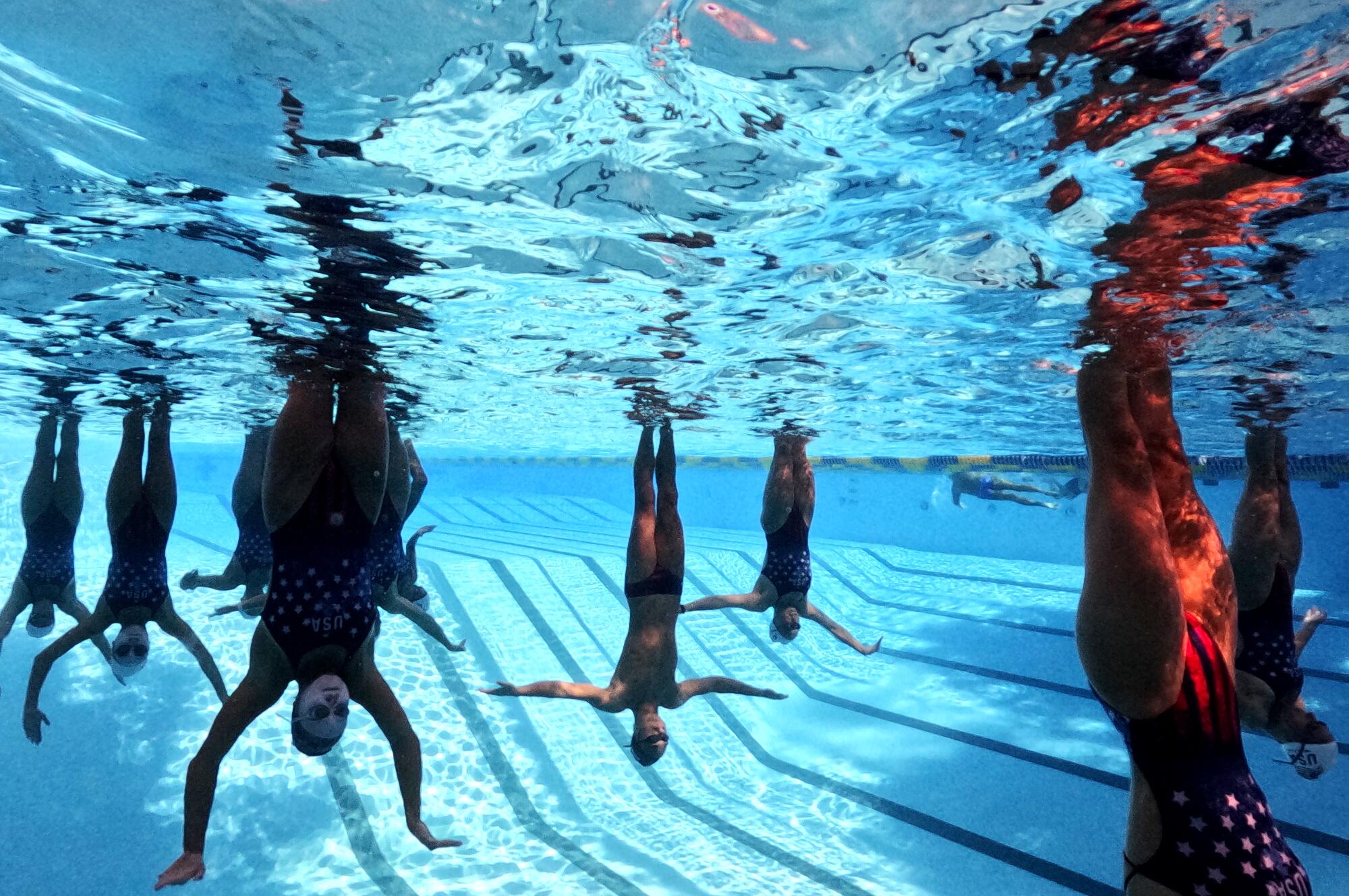
“In the water, I can move my body differently. I like how I can express myself in the water rather than on land.”
— U.S. artistic swimmer Kenny Gaudet
Still, coaches liked his attitude and the timing was right, with male swimmers becoming a bigger part of international competitions.
“It’s a very exciting development,” says Nicole Hoevertsz, a former artistic swimmer who now works as an International Olympic Committee executive. “I really hope we have mixed duets in the Games very soon and that men can be part of the teams too.”
Unlike women’s pairs — “Very matchy-matchy, like two identical, perfect human beings,” Gaudet says — male-female duos combine different styles. The trick is making strength and grace complement each other.
By 2019, Gaudet had won his first mixed duet at the U.S. Junior Olympics. Then came gold medals in male solo at the 2021 national championships and mixed duet at the 2021 Junior Pan Am Games, earning him a permanent spot on the national roster.
“I saw a rock star in him,” Fuentes says. “He has fire inside and also a very positive way of being a teammate.”
Athleticism, sportsmanship, and a fishtail full twist: How is it that artistic swimming (once known as synchronized swimming) remains a mystery to many?
Last season, Gaudet reached the podium with Coletti and Ivy Davis at a string of international meets. The medals were great but something even more important was happening.
Sitting in a hot tub, taking a break during practice, Gaudet gestures toward his female teammates working on their routine in an adjacent pool.
“I love this team because they’re super supportive,” he says. “I just feel like I fit in.”
Artistic swimming has made a place for men, with the possibility of an Olympics in the future, so no one is questioning why Gaudet does this anymore. No one is complaining.
More to Read
Go beyond the scoreboard
Get the latest on L.A.'s teams in the daily Sports Report newsletter.
You may occasionally receive promotional content from the Los Angeles Times.

